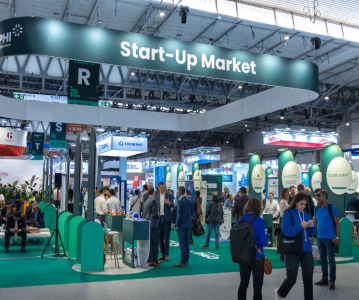CPHI Frankfurt: Interview with Marcelo Cruz, Vice President, Business Development & Marketing at Tjoapack
.png)
In this series of interviews, we caught up with some of the exhibitors at CPHI Frankfurt to discover what innovations are being brought to the pharmaceutical industry this year. Here we chat with Marcelo Cruz of Tjoapack to discuss how global events are shaping the future landscape for pharmaceutical injectables and syringes.
Could you give a brief overview of your role at Tjoapack?
I’m Marcelo, I’ve been with Tjoapack for four years, prior to that I worked for Kimberly-Clark, before that, VerGo Pharma, my background is mostly in marketing. I took over marketing and development at Tjoapack with the mission to grow our portfolio of clients and new services. Tjoapack was very strong in generic pharmaceuticals, now we are onboarding a lot of biotechs and moving towards packaging of injectables. So, we have been growing our business, year on year doubling our digits – so the mission has been quite successful! We have managed to sign 25 clients in the last four years.
Could you give us some further background on the main avenues you’re looking into?
The market is moving towards injectables. We know what the trends are, the fact that the population in general is growing older, the fact that drug manufacturing is getting more and more guided towards being more customised, more personalised medicine, that’s where we are moving to. Four years ago, we were very strong in generics, 9% of our total work was generics, now injectables is growing. To cater for that, we have invested in new equipment and now have a fully automated packaging line for vials and pre-filled syringes.
You’ve been expanding a lot, but have you seen any impact of recent events in Europe on the packaging industry, Brexit, COVID, the war in Ukraine?
We have seen some impacts, some for good, some bad. Brexit has been good for us because we are in mainland Europe and that brought us a few customers because of the barriers on transportation, customs etc. It meant that products made in the UK, which have to be distributed in Europe, were more expensive. It made sense for some companies to shift production to mainland Europe. Tjoapack is in a good position, we have a very strategic geographical location in the Netherlands, so we are good to go to Western and Eastern Europe.
We didn’t feel as much the impact of COVID because as a pharmaceutical manufacturer we didn’t stop, the industry was needed so we never stopped. Where we did feel it was in human resources. It became an issue because many people were getting sick or left to go back to their home countries. That was the main impact where we had to create new measures or approach that in different ways, such as marketing getting involved in recruitment, to help to bring more people into the company. We also increased the wages of our factory workers to make us more competitive.
Moving on from the strong position you’re in now, would you be looking at expanding more globally?
The company, until two years ago, was a family-owned company, but in the meantime we have been partially acquired by a private equity company, so there was an injection of capital into the company. Then we acquired a company in the USA, another pharmaceutical packaging company, which has enabled us to extend our footprint into the USA. We are now investing in quality systems and increasing capacity and warehousing space there as well.
The plan is not to stop there, the idea is that we become more than just a contract packaging organisation. We don’t want to go into different segments like drug development, but we want to be packaging experts who help the client with their packaging design, regulatory work, import, export; it’s these added value services that we are bringing to our portfolio. For instance, with the rise of biologics, our quality people are being trained on that, we extended our license to include biologics, so now we can import and export biologics, we can release biologics to the market. We are trying to follow the trends to be really advanced for our clients.
Sustainability has been a mainstay topic at CPHI Frankfurt this year. What have been some sustainability concerns for the pharmaceutical packaging industry in the last few years?
We are a contract packaging company and what we do is largely guided by our clients. In our facilities, we try to reduce energy consumption, to restore renewables. When it comes to the packaging, we are limited to what our clients ask of us. In the past we offered our clients the option to have recyclable blisters. They were not as receptive to that at that time. Our hands are a little bit tied as we need to follow the specifications given by our clients. We are trying to help by minimising waste in terms of unsustainable packaging or looking at buying materials that are close to our facilities. In the Netherlands our material suppliers are very close to our facilities, which minimises transportation. It helps us fast-track products to the market too so we really aim to keep all aspects close in proximity. There are more actions that we do to try and minimise our carbon footprint, but when it comes to packaging material and packaging specifications this is dictated by the client.
We hope that there will be a change in what the clients specify to be more in line with this in the future. We still use a lot of packaging that is unnecessary, but we try to minimise this, there’s a lot of room for improvement.
What does an event such as CPHI Frankfurt offer to the packaging sector?
CPHI Frankfurt for me is the biggest event on the pharmaceutical calendar, it’s the place to see, and to be seen. It’s about the opportunity to meet people, to talk to our clients, to prospective clients, to demonstrate our brand, to show that you are doing well in the market and that you can be trusted. It’s an important event for the industry. In the end, although it’s business to business, people buy from people – human interaction is important. It’s a great market for companies like us to put our name out there, partners will see us here and if they have a packaging project, they remember seeing us here, and our name! From my marketing background, getting your brand out there is the most important thing.
Any final comments?
We have been investing in our facilities in the Netherlands and we will do the same in investing in our facility in North America. We are following the trends, entering the injectables market, and we’ve moved to fully automated machines with capacity for 12 million vials and 8 million syringes. So the main message is that we are expanding into injectables and are ready for a big capacity in this space.
Related News
-
News Pharmapack Awards 2024 Patient-Centric Design Award Winner – Dr Ferrer BioPharma
The 2024 Pharmapack Awards celebrated the best in innovation and design for the pharmaceutical packaging and drug delivery industry on January 24, 2024. -
News Women in Pharma: Minding the Gap at Pharmapack 2024
2024 marks the first year Pharmapack will host a Diversity track dedicated to bridging the gap within the pharmaceutical packaging and drug delivery sector. The track includes a panel discussion on 'Enabling Diversity in the Workplace,' focused... -
News Pharmapack Awards 2024 - Celebrating Packaging and Drug Delivery Innovation
The 2024 Pharmapack Innovation Awards ceremony celebrated the best in pharmaceutical packaging and drug delivery innovation at all levels. The awards were held on January 24, 2024 at the Paris Expo Porte de Versailles. -
News Pharmapack 2024 - From the Floor
Paris once again welcomes Europe’s leading trade show in pharmaceutical packaging and drug delivery innovation. Join our content team as Pharmapack 2024 opens its doors to leading experts and innovators in pharmaceutical packaging and drug delive... -
News CPHI Barcelona 2023: Partnering for Success – Managing Outsourcing Relationships to Optimise Manufacturing Operations
During CPHI Barcelona 2023, insightful content sessions offered attendees the chance to explore trending topics with expert speakers and panellists. Here, we summarise what the pharma industry and supply chain are talking about the most. -
News CPHI Barcelona 2023: Loading Potential – Artificial Intelligence for Pharma Manufacturing
During CPHI Barcelona 2023, insightful content sessions offered attendees the chance to explore trending topics with expert speakers and panellists. Here, we summarise what the pharma industry and supply chain are talking about the most. -
News Pharmaceutical industry supports COP28 health stance in joint statement
As COP28 takes place over this week in Dubai, UAE, several bodies in the pharmaceutical and health industries have come together to announce support of key movements in sustainability in the sector, and to recognise sustainability as a health issue.&nb... -
News CPHI Podcast Series: Start-ups take centre stage at CPHI Barcelona
The first episode of the CPHI Podcast Series since we attended CPHI Barcelona in October covers the Start-up market at the event, with expert Matthew Wise joining Editor Lucy Chard to discuss the event.
Position your company at the heart of the global Pharma industry with a CPHI Online membership
-
Your products and solutions visible to thousands of visitors within the largest Pharma marketplace
-
Generate high-quality, engaged leads for your business, all year round
-
Promote your business as the industry’s thought-leader by hosting your reports, brochures and videos within your profile
-
Your company’s profile boosted at all participating CPHI events
-
An easy-to-use platform with a detailed dashboard showing your leads and performance
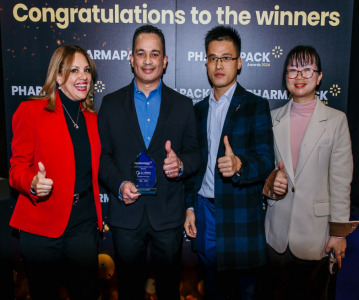
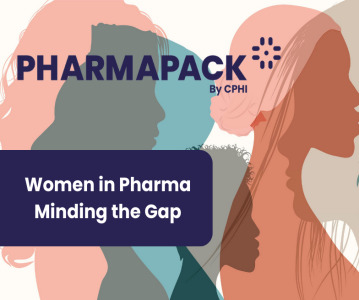
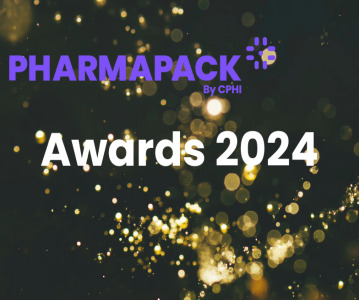
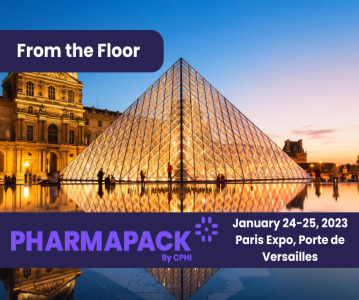
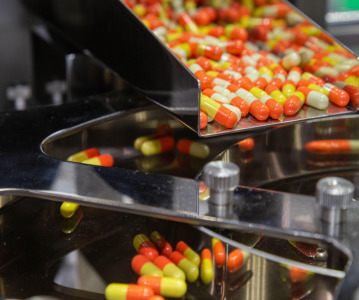
.png)

